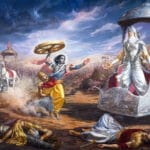The focus of the most assertive criticisms of capitalism is the following proposition: Capitalism did not abolish slavery, it changed its name. It has turned slaves into workers. The master-slave dialectic has transformed into the bourgeoisie-working class dialectic and continues in this form. Although there is some truth in this criticism, it has opened the door to counter-criticisms that find the abstractions of “master” and “slave” too much reductionist because they involve a level of generalization that would absorb all the remaining social categories, or rather exclude them and render them invisible. Yes, the slave has been transformed into the worker. But throughout history, in almost every established social order, there have been socialities that were neither masters nor slaves, that stood outside this dialectic, and in most cases even took on referee-dominant roles in this dialectic. During the process of modern socialization, this group was abstracted as “the people” or “society.” The concepts of people-society and, in the modern sense, the people-nation represent the broad masses that were neither parties to the historical dialectic and open ended to the both sides but found wider or narrower living spaces through the conflict or reconciliation of the two opposing sides.
History is full of examples where the general orientations of these silent, widespread and amorphous masses, which are not party to social conflicts, determine the processes. This sociality, which the ancients abstracted as the common people and the modern ages as the people, was described in the literature of peasant socialist movements with a content that expressed worker-peasant-petty bourgeois classes and segments. Since World War II, the concept of “society” has achieved near-total dominance in both formal and informal literature worldwide. Society came to signify the common bond of citizenship, encompassing every class and group, every religion, and sect. Nation, in turn, became the more legal, technical, and even ideological name for this concept of society.
We witnessed societal abstraction becoming a reverse reductionism that flattened and made invisible all class and social contradictions, opposing the reductionist deviation of the master-slave dialectic. The legitimizing and mobilizing concept of this new generalization and reduction was democracy. Democracy meant that the society governed itself, determined its own destiny, solved its problems without conflict, and even meant overcoming contradictions because it included a kind of equalization with the universal suffrage system. Capitalism defended itself against the criticisms of hegemony, inequality and exploitation through the concepts of society and democracy. The current problem is the development of democracy, transforming society into an even more amorphous, shapeless, ambitionless, and mediocre mass (everyonized society), thus making capitalism entirely invisible and unrecognizable. Yes, leaders were chosen by everyone through general elections, everyone was an equal citizen, everyone had the right to own property under free competition conditions, and everyone could move up in class. Everyone had become “everyone.” In other words, there was no master, sovereign, or privileged upper class. Social problems and the need for Democratization of Democracy did not arise from the existence of this class, the problems were common to everyone, the solution was hidden in the common preferences of the society. Ortega y Gasset, in his book Man and the Masses, draws attention to this modern mystification and examines the consequences of society being turned into “everyone.” Everyone is no one. It is desocialization and the loss of humanity. Jean Baudrillard defines this process as ‘the end of the sociality’. There is now an arena of shows and signs, and instead of society, there are fake as-ifs consisting of simulations. Many things, as if they were human, as if they were the state, as if they were society, as if they were media, as if they were intellectuals, as if they were art. What is not as-if, that is, what is real, is only selfish interests and selfish people who can use these interests at the maximum level. In modern times, masters have developed a form of sociality that hides themselves and the conditions of being a master. These false societies are essentially aimed at maintaining the network of relations against and above society. The masters now need to hide, and democracy can be used as a theater that provides exactly this invisibility. Everyone becomes “everyone” by watching the theater of democracy. Yet in reality, some are still remain as masters.
We stated above that there is a widespread category of people-society outside the historical master-slave dialectic. Even though they are not completely outside this dialectic, the broad masses that at least they are not part of clashes between these two, have been transformed into the ‘everyone’ of modern capitalist society. If capitalism was able to triumph over socialism after the aristocracy, this ability is linked, among other reasons, to its skill to develop social technologies that enable this sociality to be realized and managed. After thousands of years of mastering the techniques of governing slavery, in the capitalist age, the masters discovered techniques for governing the people as well. This is the exploitation of democracy.
At this point, the whole problem is this: For the real creation of sociality, that is, for a genuine democracy, there should not be a class or group that is above and against society. More precisely, a true democracy must be conceived, first of all, as a method of constant rejection of a sovereignty above the social. Yes, the abolition of slavery, the liberation of slaves, and the establishment of a shared and equal baseline of rights for the people to determine their destiny is democracy. But at the same time, this must be a process that constantly excludes its opposite, that is, liquidates the mechanisms of mastery and transforming masters into the ordinary people. In this sense, the democratization of democracy must be examined as an issue. Because what is important is not the majority of the society, but the whole society itself, to have the same equal opportunities and opportunities to use their free will. The concepts of majority and minority can serve to the solution of a democratic problem only to the extent that they are criticized by perceiving them as a minority consisting of the masters and a majority consisting of the rest. However, today it is used to refer to a part of the population that does not have what it wants numerically, rather than the masters as a minority who hide themselves. What is dangerous is not that the wishes of this minority do not come true, but that the master minority can do whatever it wants under any circumstances. Therefore, against this abuse of democracy, it is necessary to highlight the search for a new democracy that includes the rejection of all forms of domination in all cases.
Democracy should fundamentally and primarily eliminate all privileges and exploitation. As a mechanism that continuously rejects the dominance of bureaucracy, capital, media, and any religious or secular authority, democracy should be employed by the people to its fullest extent as the most viable method for creating true sociality.
Globalist and Nationalist Exploitation
It can be said that the program, defined as the globalization process and carried out under the leadership of the USA, fully exploits democracy and the market. This global program, which in reality consists of efforts to establish a global oligarchy and the hegemony of anti-market monopolies, expresses the globalization of anti-sociality that defined as end of sociality, or everyonization. NGOs, media, autonomous boards, etc., which are used as post-modern tools that attempt to be positioned against modern nation-states and institutions, are presented or constructed in a way that expresses society’s demands for innovation. It seems that this effort, which continues with the legitimizing support of the opposition discourse built on the weaknesses of the states, is aimed at building new mastery mechanisms rather than the development of a real sociality. The destructive propaganda that carried out in the name of enlightenment and freedom aganist aristocracy and the church in the 19th century to establish nation states and that carried out against empires with discourses such as the right to self-determination of nations in the 20th century, is being repeated today with the discourse of democracy, human rights, freedom and free market against national states and institutions. Discourses such as enlightenment, freedom, and self-determination of nations were fascinating goals at the rhetorical level in the last century. Especially for the people of Europe with a medieval past, the meaning of these goals was great enough to create a historical leap. However, over time, it became clear that this rhetoric served no purpose other than consolidating the hegemony of new masters—the bourgeoisie. In fact, it can be said that the bloody consequences of the famous 1870 Paris Commune experience led the European people who took these discourses seriously to meet the reality, that is, to understand the real intentions of the bourgeoisie.
As a matter of fact, Marxism began to gain strength as a radical protest movement from this date onwards. For European peoples, Marxism was always understood as a radical protest discourse that unmasked the bourgeoisie. Similarly, the ideology of nationalism developed with justified criticisms made through national identities against the despotic hegemony of military agricultural empires. However, nationalist movements have still not understood that their efforts to invent a national identity are a curtain hiding the global network of international companies that bind national bourgeoisies to themselves. In fact even today, it is very difficult to say that nations fully comprehended why they have lost their many qualities, which had kept alive by empires, in the age of nation states, and how rising global capitalism standardazing domination tragically alienates the nations from their essence. Today, there are no longer the infinite variety of distinct nations, identities, and cultures as there were until the 19th century. Today, there are peoples of the non-Western world who are eagerly trying to adopt the nominally national but actually Anglo-Saxon-Judeo-Protestant (or Catholic) culture and identity.
The most striking aspect of these processes is that the changes experienced or imposed are built on legitimate causes but ultimately result in outcomes entirely unrelated to or even contrary to those causes. Modern capitalist ages have presented to the humanity with the third repetition of this story. It was preached to get rid of religions in the 19th century and empires in the 20th century; In the 21st century, it is preached that nation states and national identities should be gotten rid of. Moreover, with the same discourse of righteous reasons and similar methods.
Today, the chance of nation states, whether governed by dictatorship or democracy, to resist as nation states against the imposition of integration into the new global project seem slim. Moreover, many of these nation states themselves also have a dirty record and a dirty history. Although European nation states seem to have forgotten their dirty record for now, thanks to the European Union project, the sins of Europeans will be revealed one by one in a possible disintegration process. Likewise, it is more or less known what kind of cruelties thanks to them the nation states in our region were able to exist during both their founding processes and their short lives. Now, these dirty records are being put in front of nation states and they are being offered options to adapt themselves to the new global project with the threat of liquidation. Iraq and Afghanistan are examples of liquidation matter, while Lebanon, Syria, Ukraine and Georgia are examples of adaptation efforts. Iran and Türkiye, on the other hand, oscillate between resistance and adaptation. Iran is an example of appearing to resist, while Türkiye is an example of appearing to adapt. (The truth will perhaps be the opposite.)
Large and powerful states such as Russia, China and India are subject to indirect attacks because they are not open targets for now. However, it is known that projects involving the disintegration of all three countries are kept in reserve unless they adapt. It is likely that China and Russia will resist and India will adapt. African and Latin American countries have limited opportunities for self-determination. They are not expected to be an example of an alternative other than their chance to survive by relying on alternatives that resist among the great powers.
On the Verge of a New Great Transformation
If we interpret this short global picture in terms of the possibilities of the re-emergence of the sociality, it will be seen that the situation is so new and complex that it cannot be compared with the previous global impositions. Because, above all, technological innovations and the now-taken-for-granted results of modernization are two important variables that did not exist in previous periods, determine the character of the process we are experiencing. The world is experiencing a new great rupture, and the entire accumulation of the agricultural and industrial ages is both the antithesis and integration ground of this new digital transformation. Global capitalism is about to overcome ten thousand years of agricultural habits with biogenetic technology, and the three hundred year old industrial age with microchip technologies. Yet the means of adaptation and resistance to this process still rely on the tools of the agricultural and industrial eras. In other words, what seems possible is, in essence, what is no longer possible.
In this case, being in or on the side of the process and standing against it cannot be defined as clear and distinct alignments as before. It should also be noted that, along with the whole world, the USA and the UK are also subject to the transformation process and imposition that continues at the level we mentioned. Just like the great transformations in previous periods took place first in Europe.
The involvement of the sociality, that is, the masses consisting of real people themselves, in the process and their development of decisive attitudes against all kinds of transformations experienced or imposed should not be regarded as a simple demonstration of democracy but much deeper process of democratization. In this sense, a deepened democracy will, perhaps for the first time, lead to its main purpose, that is, the masses and individuals to take initiative. The speech and action of ordinary, silent masses against the elites composed of the bourgeoisie and bureaucracy as modern masters could become a genuine effort for self-determination. The rhetoric of democracy, which has served as a theater for concealing masters, could evolve from a game of representation into the manifestation of society’s will to determine its destiny. Likewise, it will be possible for fake nation states, which have turned into places of domination by local oligarchies, to turn into real social intelligence organizations, that is, into real national states.
A democracy effort that rejects all forms of internal and external domination mechanisms would increase the possibilities of overcoming imported democracy projects, tutelage-driven democratic games, and the liberal-fascist program driving humanity toward a global techno-fascism. A genuine democratic depth that creates strong individuals and a self-confident society will force states to give up their weaknesses and transform into an organization of truly national social mind. Only under such conditions can nation-states possess the strength and capacity to fulfill their true missions of serving national interests and fulfill their duties.
Beyond politically based formations such as the military-political projects of the USA and the economic-political projects of the EU, much more critical developments await humanity, the consequences of which will be created by biogenetic technology. At the threshold of all these multifaceted changes, the duty of nation states is not to take shelter in nation-statist rhetoric and wait on the defensive, but to implement deepened democracy programs that strengthen societies through national and regional integrations. There is no real possibility of defending the nation with just rhetoric. The main thing should be to equip individuals and societies with more information, property, rights and freedom. A strong society can determine its own destiny and to do this it does not need tutelage and guardianship. The era of “demonstration” societies, which were maintained on the basis of amorphous and weak-willed masses, everyonized masses, is now over.
Now the window for nations and societies to speak with their own voices and take their own action with their free will, is opening. The duty of both states and intellectuals is to stop giving clothes and projects to nations, and to look from those windows and follow the footsteps of real people. Real people, that is, the society, the nation, the people, the silent masses, still have an intuitive spirit and conscience to distinguish and choose right and wrong, good and evil. If humanity needs a master, there is no harm in keeping this spirit and conscience as its master. The democratic societies of the future will be the expression of orders consisting of individuals, each of whom is a master, without masters or slaves.Our hope is that our country and our nation will turn away from empty things and focus on this race. Otherwise, the result will be demise.
Source: Özcan, Ahmet, A Man Without a Cause is No Man, Yarın Publishing.








